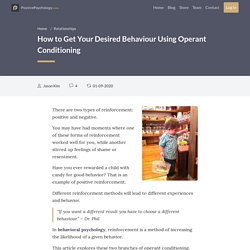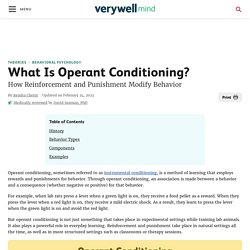

What~is~Normal(@alisonsaidno) on TikTok: Reply to @andielariccia. Positive Reinforcement - Tips for teaching and parenting. How to Deal With a Disrespectful Teenager: 10 Tips for Frustrated Parents. Are you dealing with a disrespectful teenager?

Maybe he mutters under his breath when you ask him to do his homework. Or maybe she slams her room door when you tell her that she can’t go out with her friends. Effective Consequences for Teenagers. If you’re having trouble giving effective consequences to your teen, know that you are not alone.

Many parents tell me that nothing seems to work, and that coming up with the right thing for their child can seem like an impossible task. If you’re the parent of an adolescent, you may have grounded your child, taken away their video games, or suspended their driving privileges for months on end. How to Reward Your Teen for Good Behavior. Teenagers are young adults who are trying to learn the ways of the world.

When they do something great at school or at home or simply make a healthy decision, parents can give them a reward. The reward does not have to be money, but it is a nice way to say "thank you" or "I'm proud of you. " Teens need this positive reinforcement because it shows them that they are on the right track.1 It is also a good life lesson that you can pass on: good things happen to good people. When Do Teenagers Deserve a Reward? The value of reinforcing positive behaviour for our teens. As children approach adolescence, they sometimes begin testing limits, bending the rules and otherwise going against the grain.

While this is normal behaviour for teens, it can be incredibly trying for you, as a parent. Teenagers may also be dealing with the stresses that come with trying to fit in with their peers and assert their growing independence. However, at the same time, they are looking for validation from the adults around them. It's crucial, therefore, for parents and teachers to provide as much guidance and positive reinforcement as possible, rather than simply tightening the rules. How to Get Your Desired Behaviour Using Operant Conditioning. There are two types of reinforcement: positive and negative.

You may have had moments where one of these forms of reinforcement worked well for you, while another stirred up feelings of shame or resentment. Have you ever rewarded a child with candy for good behavior? That is an example of positive reinforcement. Different reinforcement methods will lead to different experiences and behavior. “If you want a different result you have to choose a different behaviour.” – Dr. New perspectives on adolescent motivated behavior: Attention and conditioning. Teen Bad Behavior & Discipline Plans - Promoting Healthy Growth Ages 15 - 18. Bad behavior doesn't end when your child graduates from diapers -- or even from middle school.

In fact, the teen years can bring some of the toughest discipline challenges parents have to face. Sulking, arguing, lying, and rebelling are just a few of the ways teens misbehave. There's a good explanation for these bad behaviors. What Is Operant Conditioning and How Does It Work? Operant conditioning, sometimes referred to as instrumental conditioning, is a method of learning that employs rewards and punishments for behavior.

Through operant conditioning, an association is made between a behavior and a consequence (whether negative or positive) for that behavior.1 For example, when lab rats press a lever when a green light is on, they receive a food pellet as a reward. When they press the lever when a red light is on, they receive a mild electric shock.
As a result, they learn to press the lever when the green light is on and avoid the red light. But operant conditioning is not just something that takes place in experimental settings while training lab animals. What is Reinforcement and Punishment.